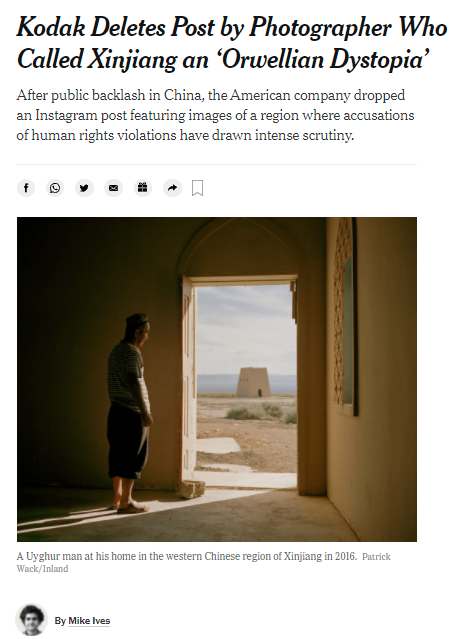Insights from the Cannon Network
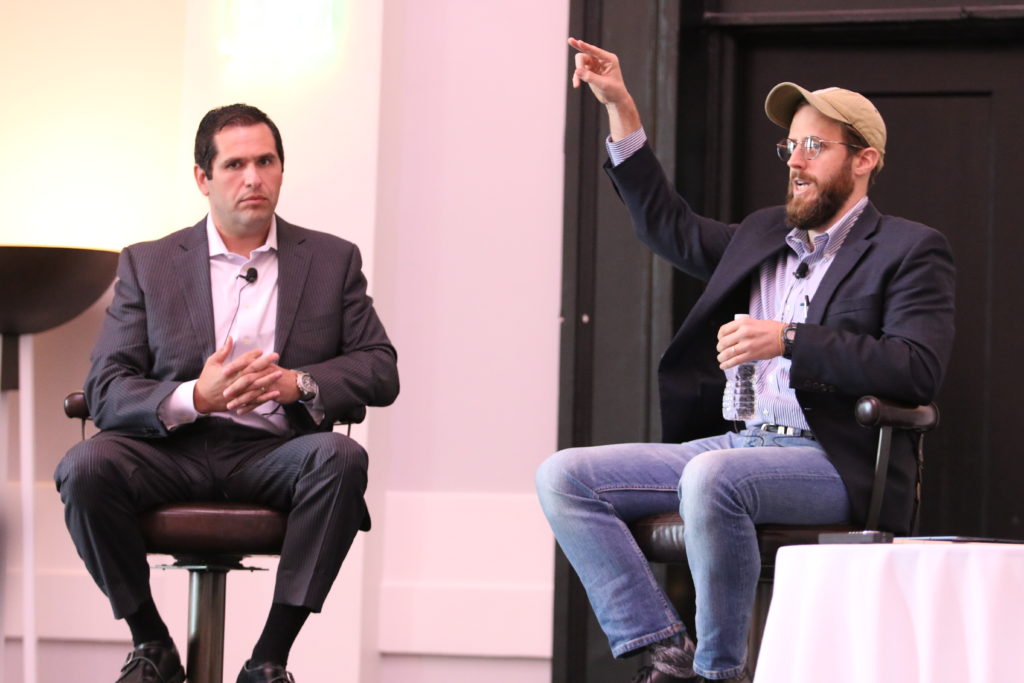
Bob Guterma: All right. Great. Well, I’ve met a lot of you, but I haven’t met all of you. It’s great to be here. My name is Bob Guterma . I’m the chief operating officer of SupChina, Supchina.com. And we’re a news website, a news platform dedicated to China. We’re based here in the U S and. Anyway, I lived in China for 10 years.
And during that time, I did a lot of due diligence and problem solving investigations for private equity funds and hedge funds and large, large multinational companies. And from there kind of entered the startup world. And then I met the sup China team and that’s, that’s how I got involved, with this company basically combining my China experience with my startup experience and trying to help the west understand China better. We’re very different than a lot of the financial publications in here in that we’re more of a traditional news organization, but we obviously have a lot of similarities as well.
We’re content based. We’re on the internet, we’re subscription revenue based. And you know, so it’s really interesting to compare notes with everybody here the past the past day or two. Another thing worth mentioning is someone asked me last night are we a publisher or are we an issuer? And we’re in the interesting situation of being both a, we are a publisher who is issuing we’re doing a reg CF right now with Dalmore group who’s in the room somewhere utilizing dealmaker who is also in the room.
And so, you know, yesterday there was a lot of discussion of Porter’s five forces and how, you know, the, the effects that the pull pushes and pulls on a media company. And in reality, to escape those forces and succeed we need more capital. And so that’s one of the reasons that we’re fundraising and as a company with an audience that’s sort of past the seed stage, but not quite yet at the scalable venture stage that made a reg CF interesting to us with the new increased limits that are available.
So, I don’t want this to become a sales pitch. It certainly won’t be, but I did just want to put that out there. Cause I know a lot of people in here are interested in that, from various angles and I’m more than happy to talk about that later, but I started studying Chinese and kind of grew my interest in China when I was in high school, my father impressed upon me that China would be the next big thing and that I should learn the language and go there.
His insight was he was a builder in south Florida. And when they started pouring the three gorges dam project in China, which most of you have probably heard of it’s the largest dam in history. I think at least at that time, I think there was a bigger one getting made in China as well. Right now. When you’re pouring a dam, you can’t have a dry fault.
You have to keep pouring concrete. There can’t be a place where you like, take a break, and then start again. And when that happened, he stopped being able to buy concrete in Florida and just seeing that cause and effect that only China can have on the world. among many other things, I think that you could start to see at that time gave him this vision that I bought into big time.
And unfortunately, he’s not around anymore, but man, he was right because in the past couple of years, what hasn’t been about China from the trade war that began in 20 18, 20 19 through to the pandemic itself to say nothing of the wealth creation and economic growth and other things of the past 20 to 30 years, what portion of it ties back to China, a huge portion of it. Obviously. Looking forward our view at SupChina is that three things are going to define the next phase of human civilization, the environment, artificial intelligence, or something like it, the digitization of all things you could call it even more broadly in China and how they interact with the world, their relationship with countries all around the world.
Most importantly, the U S obviously China plays very heavily in the environment in AI questions. So, if you had to shortcut the list to the number, one thing to watch to understand at all, it might be China. And our, our strategy, our reason for existing is twofold. One, we’re able to tell stories that other people can’t or to tell them before other people will, examples would be the me-too movement in China or the shin Jong internment camps, or even the unfolding Evergrande crisis we were talking before.
And anyone who’s been really watching China has been talking about Evergrande specifically, but also the problem of debt and China more broadly for a long time. And having a dedicated platform to unpack these issues before the New York times or Bloomberg or whoever else is picking up on it is a valuable to our core audience and becoming increasingly valuable to a wider audience.
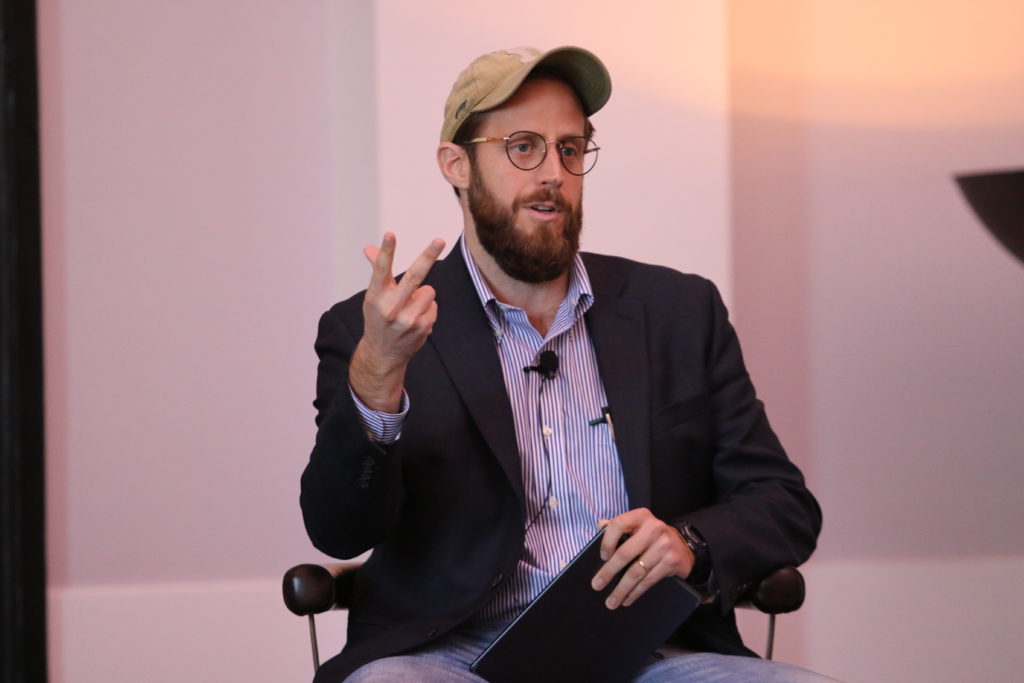
The second reason, that we, exist.
Our strategy is from an audience or kind of product perspective. There’s something special that can happen when you have a platform dedicated to a topic; where you get the same thematic focus every day or every week. If you’re learning about China through a broad just use the New York times for an example.
Yeah, you’ll see the big stories, but you’ll never see the forest through the trees.
You know, you’ll just be getting one big story at a time and you won’t be able to tie it together past, present, and future. You won’t be able to tie it to other things going on in China right now.
And by having a platform dedicated to China we’re able to help people sort through that and actually develop a real perspective on the country, as opposed to a kind of reaction driven perspective based on whatever’s happening in the news right now.
We host, we also among many other things, host what we call CEO dinners. We don’t do it anymore because of the pandemic. Although we just had our first post pandemic one about two weeks ago where we have a visiting CEO from China be the guest of honor, essentially at a dinner in New York where we get together other CEOs or managing director level folks from large companies and investment funds in New York.
Trade ideas. Talk about what’s going on build personal relationships that maybe can supersede some of the tensions or headlines that you see in both countries about the other. And back in 2019, when we were last doing these consistently. There was the trade war going on. And the crackdowns that we’ve seen in the Chinese economy in the past couple of weeks in particular, where they’ve just been taking a sledgehammer to certain industries and certain companies.
You could already see the beginning of this in 2019 coming from Xi Jing Ping the president of China and in his party, you could already see the beginning of a more aggressive approach to China from Trump and his administration at that time. And in these CEO dinners, the number one thing that stood out to me was how everybody talked in the assumptive sentence structure that what was going on was wrong.
A waste of energy and time, a shame, and that we all wanted to go back to like 2015 terms of engagement. We all wanted to go back to the time when you could get on planes and do whatever you want and make business deals without regulators on either side of the ocean, getting in the way. M and A could flow freely in both directions.
And nobody seemed to take seriously the fact that this might be the new norm, that a more complicated period of time between China and the world between U.S. And China would be the new norm. I think they don’t like it because it’s harder to generate wealth in this new environment, let alone an environment that might be worse than this one in the future.
People really wanted to go backwards but to me, it felt like eating dinner on the Titanic. After the first iceberg had hit. Now this, the rest of what I’m going to say in the next five minutes or so hopefully before we start having a conversation here isn’t meant to be doom and gloom. That’s not my shtick, but there’s just a lot of objectively bad information coming at us on both sides regarding the prospects of smooth sailing and.
To continue only thinking about like, man, if we could just get back to those 2015 times, if we can just let the dust settle. Of course, everybody wants to go back to that. That, so that’s what I’m going to do. You know that kind of thinking needs to be balanced with acknowledgement of some other possibilities, a couple of things that have happened in the past year.
Last year, every, June, in fact, there’s the anniversary of the Tiananmen Square, a massacre that took place in China in 1989. Zoom is a US founded US-based US listed company. We all know zoom now, obviously because of the pandemic. And there were some Tiananmen square anniversary events held on zoom last summer.
US-based accounts open the meetings and establish them and promoted them. And a couple people from China, join the meetings, using a VPN of course, and the meetings were shut down, halfway through and the accounts were deleted and locked. And kaboshed. Think about that for a second. Stopping people in China from attending such a meeting is one thing.
But somehow having a line of communication to the company that got them to shut down U S registered accounts, because some people in China join the meeting that displeased the communist party of China. I think about that for a second. That’s wild, a couple of weeks ago, Kodak promoted some photos on its Instagram account by a French photographer.
Who, as a caption to one of the photos, when he first released it called Shin Jong and Orwellian dystopia, that’s not even like that bad of a thing to say about a place. I mean, it’s not good, obviously, if you have Western values, but it’s like, it’s not, like he said, it’s internment camps, or we need to go to war with China or, you know, he, he just said what he said in his piece of art.
Kodak pulled it from their Instagram, issued a formal apology and a number of other things afterwards to make up for it because they got in trouble and there’s entire trackers on our website that if you reach out to me, I’ll send you the specific link for that track all the Western companies that have had to apologize to China in recent years, Chinese students studying overseas have been disciplined by their government.
For comments, questions, or interests they exhibited while they were studying in Australia or the United States. And they were often turned in by their fellow Chinese classmates.
So, what I’m getting at here is there’s some stuff going on over there that goes past economics that goes past the ideal circumstances for generating wealth. And we, we have to at least think about that. Maybe we decide, you know, what, who cares because my kids will have to deal with it, but like I’m not done accumulating wealth.
And so, I’m going to just like, let it slide. That’s a fine outcome, but we have to acknowledge that the tensions that have been building and recent years. Also, a lot of tensions in our own country for, for the U S like these philosophical level kind of patterns and behaviors coming out of society, they may stick around, they may get worse and there’s an upside in the downside scenario to be planned for in all of it.
China’s the largest trading partner to 120 countries around the world, including the U.S. and the entire EU block, Japan, and most other countries whose names you would recognize the countries who they’re not the largest trading partner for are probably mainly smaller countries or countries in like a binary star pattern like Canada with the U.S. we’re still Canada’s largest trading partner you know, for, for obvious reasons.
So, you know, how long do we think there won’t be things being asked of those countries. Like for example, right now, us passport can get you in to most countries often without a visa. Could that change one day, could that change one day where China says, Hey, we want to come in without a visa. And can you throw some tire spikes essentially and start making the U.S. passports get a visa. I’m not trying to scare anybody. And I’m not saying that that’s going to happen. I don’t even know if that would be a big deal if it did happen.
But my point is there’s more at stake maybe than just making money than just doing deals. So, can we go back to 2015? I don’t know. Would we really want to, or do we really want it to be that simple or do we want to confront bigger issues going on here?
All the good capitalists in this room may think that China’s problems are just China’s problems that China would love you to have that view. But we may be approaching a time when that’s not possible. Or put another way, the cost of continuing to do business may somehow actually exceed the cost of not doing business.
You know, that if we put our foot down on some of these things, what does that look like? Now I’m going to make a, a quick move to wrap this up on a slightly kind of more positive note in a more practical note. It’s not a foregone conclusion that relationships between relations between the two countries won’t come back after the Tiananmen square massacre, there were huge repercussions internationally for China, and it was unclear that the opening of China would continue at all.
And obviously, it did very soon and very earnestly and very, very significantly. And we got another what is it now over 30 years of progress from that moment and nothing like that has happened right now. So, to say, Hey, look at everything going on. It must be game over soon. I don’t think that’s the right takeaway here.
I, everything I’ve set up till now has been to get people to pay attention that the last time things happened with China that were extremely complex for us to respond to China was primarily subsistence farmers. And now they’re the second largest economy in the world. Maybe the first, depending on how you measure.
They are the second largest capital markets in the world and the second, most powerful military power in the world. And so, the next time we face such a complex moment with them. It won’t be as easy as just like pulling our ambassador and ignoring them for three or four years, till everybody comes back to the table, there’s going to be, we’re going to have to prepare more.
There’s a lot of problems left in China, which we’re going to get into in a minute. The stock markets in mainland and Hong Kong are still below their 2007 highs. So, think about that for a second. Everybody in this room is primarily here for capital markets related things. Imagine if the us stock exchanges were in aggregate still where they were in 2007.
You can’t obviously, so imagine what it would have taken to like make money in the Chinese stock market. You know, over that course of time while the total market cap is actually down, it’s almost impossible. We’re seeing a lot of creaking, a lot of creaking and bending and you know wear and tear in their economy through the Evergrande and Huarong debt crises that we’ve sort of seen unfolding in slow motion recently.
And you know, most importantly over the decades, most people who win in the Chinese economy, individuals seek to kind of split their hand.
There’s a lot of Chinese wealth that gets moved outside of China. Many of them established footprints outside of China. This is one of my favorite anecdotes because, you know, what does that mean about the surety of the platform that they’re building as a country and an economy?
If the first thing you do once you’re at a certain level of personal establishment is like build a side plan, you know it, it, it points to something. All right. So, at the end of the day, I don’t think things are going to get better quickly. Us policy goes back and forth while. Every time there’s a change in administration or something like that. But both parties are in pretty strong agreement that we need to be super firm against China. I was talking to some people last night in the bar and you know, I don’t think we’ll ever at least beyond this talk in the mainstream media thank Donald Trump by name for much. But I think we will look back at the toughening of our approach to China and say, thank God it didn’t come a year later or two or five years later. And I think that that was an important thing that changed. And I think both parties are on board with that. So, I don’t think the US is going to be extending any undue or out-sized olive branches in the coming years in China for its part doesn’t go back and forth. That’s not how they roll.
They have very clear ten-year plans, and they tend to make pretty serious progress on them. Once they announced them. And if you look at their plans, there’s not much of a softening in the works, not internationally and also not domestically for their own audience.

So, I’m going to list out three catalysts, and then I’m going to tee up the question and I’m going to kind of open this up.
What do you watch to kind of see where things are going?
I think the number one thing in the headlines right now, and, and something I’ve been a big fan of watching for a long time is debt, private nonfinancial sector, corporate debt in China’s up to 222% of GDP for reference in the U S it’s 164%, but I assure you the quality of the debt here is much better than there.
So, the actual difference is much larger than the 60% you know, gap their household debt of GDP is up three X in China since 2007, while GDP has also grown. So, the absolute growth in debt is massive. The shadow banking sector. Which is basically unofficial lending and unregulated products that spring up in China to solve problems at the official banking system there can’t solve right now is over 100% of GDP, even by the central government’s publicly stated figures.
So, let’s go ahead and assume those were concerns. But it’s a closed banking and closed currency system. So, everything we think would obviously have to follow from this facts here might not play out there. They have a lot more tools in their tool chest than we do here with no freely convertible currency in a closed banking.
So. But what is at risk from the debt is the social contract, the collective confidence and trust within the Chinese economy. And that’s why the evergreen crisis, the real estate developer crisis that we’re all reading about in the headlines is a big deal because the number of people they impact through their employees, their contractors, their customers, their lenders, it’s in the tens of millions of people.
And so, if they were to crater, it wouldn’t just be a company it’d be you know, a very large chunk of the Chinese economy. So, debt’s a big one and you see it playing out everywhere and you can read more about it and tons of places. The second one is Xi Jinping staying in power after 2022. For those who don’t know Chinese presidents have a tenure of two five-year terms with a ten-year total limit.
Chinas had two peaceful transfers of power in history the first one was in 2004.
China’s opening began in 1979 and we tend to think that was the end, you know, like it’s all good since then, but all of the transfers of power between 79 and 2004 were contested either publicly or behind closed doors. And we’re very complicated and messy.
2004 was the first peaceful one. When Jiang Zemin handed over the keys to the military. To Huo Jintao, who then did so again, in 2012 to Xi Jinping, two years ago, they scrapped the term limits. Why after establishing term limits to make sure a Mao Ze Dong phenomenon never happened again. And then just one and a half peaceful transitions of power into your new history you’d scrap your biggest failsafe protection is beyond me.
So, you know, we’re going to see what happens there. And there’s a lot of scenarios that could play out there all over the gamut. Again, if you want to know more about this stuff, we can talk after. So, debt crossing the Rubicon in 2022, when Xi Jinping finishes his 10-year limit and seeing how that plays out, everybody acts like it’s a foregone conclusion he’ll stay and that it’s going to be awesome.
I’m not so convinced.
I think all bets are off when we crossed that Rubicon it’s never happened before, except for the last time it did. And that was a disaster. And then the last thing is the crack down on all the companies. We think we’re going to China to do business or they’re coming here to do business.
The Chinese government has taken a sledgehammer to entire industries, to their national champion companies like Alibaba and Tencent taken an absolute sledgehammer straight to them. What do you think they’re going to do to us? You know, what, what do you think they’re going to do to companies outside of China?
What do you think they think about their companies going other places to do deals? I think it’s clear that they’ve got other priorities and that doesn’t mean that deals will never happen and that deals can’t be profitable. It just means that the good old days of 2015 they’re gone. All right, so let’s make a plan.
What’s your upside strategy? Is it like focus on private investments instead of public equities? Is it to try and get in on A shares on the Hong Kong exchanges or A shares in China through some vehicle that has yet to exist for retail investors? You’ll have questionable market forces at your back again.
The stock market’s net down in the double digit percents over the past 15 years. So, you better pick the winners. Well, what’s your downside strategy? Are we prepared for an Apple, Tesla, TSMC, LVMH, Nestle, Pfizer, Disney, GM Airbus, Intel that are all 20 to 50% smaller than they are today because most of their revenue or a large chunk of their revenue derives from China or China related growth? so, what’s your plan for the upside? What are the opportunities you can find? Maybe there are not in China, but outside of China as a response to what might happen with trying to, and what’s your downside strategy on your entire portfolio on everything that you think you know about the global economy?
That’s it for me? I’m going to. Kind of humbly submit myself to questions or you to riff on things that I brought up. And then I think we’ll open it up to the group as well.
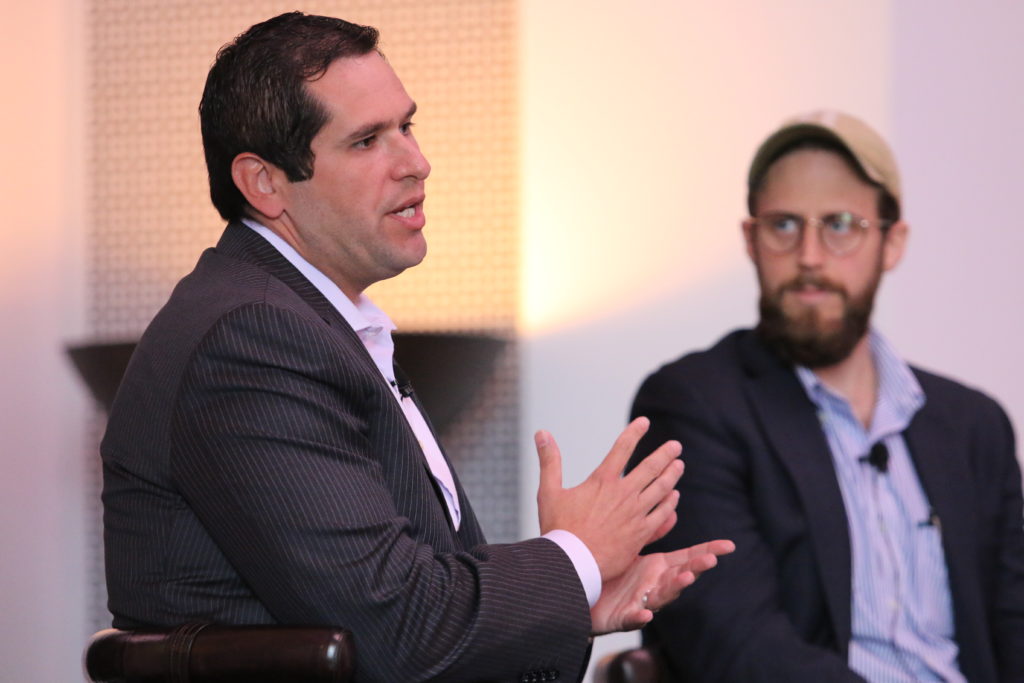
Mark Rossano: I’m Mark Rossano I run a private equity fund and a consulting agency, helping companies essentially manage their energy.
They’re a global supply chain because as he’s going through China, there’s knock on effects. Nobody sits still. You always, China does something. India does something. Australia does something for those. Been following the UN Australia has walked away from France. They now have a deal with the UK and America to get eight nuclear submarines.
So, there’s always this push and pull. And one of the things that you bring up and, and just to kind of clarify that 2015 and why that’s so important, you have to go to the south China sea and the nine-dash line. And what became known as the great lie in the rose garden to President Obama when, why are you in the Spratly islands?
What are you doing there? Oh, they’re just, they’re innocent. There’s nothing wrong there. And then within six months, there’s, there’s anti-missiles anti- ships. There’s radar advanced radar advanced equipment. And then that really opened up the pivot to Asia and I think I want to turn it back to you and ask you when, you know, because you’ve talked about how President Trump came in and started to move things along and you said, it’s good it didn’t take an extra year, but it was very much teed up. You had the pivot to Asia, you had two different reports on how much is China stealing from the U S in terms of what became known as the IP commission report, which then was used to create policy under Obama that then actually just really got continued under Trump.
So, you saw a lot of continuation and Biden has really picked up right where we left off and has maintained this. So, when you go back to 2015, I mean, is there really that opportunity given that it’s already in law, it’s already gone through Congress and we’ve already kind of. Let’s just say the Boulder’s been kicked off the top of the mountain at this point.
Bob Guterma: It’s a good analogy. So, when you say go back to 2015, you mean the image I was painting of people saying if we could just go, right. I think that there was still more opportunity in the system. I think like from the audience perspective, if this is where we started and let’s assume, we’re going to go down, whatever that means US China relations.
This was the original trajectory and then post-Trump; it was more like this. It was steeper and in a more negative, absolute outcome. And the reason is there’s one way to guarantee China doesn’t do something and that’s to tell them publicly to do it. It’s very simple. They have a very rigid negotiating process, and they are damn good at it.
And if you go in there and say, you have to do this, that is the one thing you can guarantee is not going to happen. And it’s not bluffing. They’re not bluffing. They’re not walking away. So, you call them back. They’re gone. And so, I can’t prove that Obama and his team or anyone else that may have come in after them had the rigor and the urgency to hold a firm line actually really on their hypothetical lines. But I, I, there is room to argue that a more sophisticated approach with behind door dealings in proper diplomacy, so to speak could have opened up more upside, or at least less downside, but by taking a sledgehammer to it publicly, by the president of the United States tweeting anti-Chinese things. Wow. There are like envoys from both countries meeting in Hawaii and other places to talk about things that’s just like probably counterproductive with most relationships. And it’s particularly counterproductive with the Chinese there’s this notion in Chinese culture of face.
Basically, means like public respect and I would avoid against trying any kind of kitschy or easy understandings of what it means, but it’s a very real concept. And if you embarrass someone, especially serially and therefore deliberately not by accident They’re just not going to play ball with that.
And they’re never going to trust you again and now anything that they might’ve been holding back on, like, you know, daggers behind the back type stuff. Like they’re going to use it now. You know? So, I do think that there was like a second bigger, boulder kicked off the top of the hill or something like that to use your analogy.
Yeah.
Mark Rossano: When you look at, you know, for anyone that’s been following with what happened in Macao where they they’re now starting to crack down on gambling. They’re starting out there’s party members that are part of US companies there. And it’s a matter of, well, are they going to start waiting the kitty and trying to raise, raise the, some of this cash flow, but you bring up the point with debt and you know, when you look at the debt level, you, one of the thing that, that seat, the CCP has mandated was off balance sheet has to be recognized.
Because they’re seeing a lot of the shadow banking, a lot of this off-balance sheet debt with what’s called local government financial vehicles or LGVs and special purpose bonds or SPBs are just huge. They’re there they’re sizeable. When you talk about this level, this percentage, you know, everyone looks at China and says, well, they’ve grown at 12%.
It’s like, well, you’ve grown at 12%, but yet you’re still growing your debt levels. So, when you’re at 286%, You’re spending $2.80 to make one, to pull yourself up. So, one of the things that they’ve really come down to is really cracking down, like you said, taking that sledgehammer and really coming after that, what is the end goal?
Like when you look at you talk about Evergrande Evergrande is 3% of the Chinese GDP. That sector is 29% of China’s GDP. Yeah, this is, this has been a huge growth engine. You talk about cement, I mean, cement going into buildings. So, what is on the other side of that? You know, is there something where there, we’re going to see this mark slowdown or are they just going to panic and, and stimulate as they have in the past?
Bob Guterma: Yeah, there’s a lot in that question. First of all, interesting fact, between 2015 and 2018, China poured more cement than the United States did in the 20th century. Like let that sink in for a second. That’s nuts. So, is there a big end game I’m going to repackage your question slightly and just say, is there a master plan or an end game in mind?
And there’s a vigorous debate going on about this in the China expert community. I highly recommend this is a shameless self-promotion because it’s just a damn good podcast episode on this exact topic. I think it was a week or two ago. Our flagship podcasts. We have eight podcasts, the Sinica podcast a week or two ago.
Was about this exact topic, all the crackdowns. And is there a master plan and our hosts Kaiser, who’s a, you know, a foremost China expert. He eschews the term. He, he, he says anyone who is a China expert would never call themselves a China expert because they would know that you can’t know what’s going to happen with China, but that’s a pretty esoteric eschewing of a title.
He had the consensus going into the podcast, recording that there is some form of a plan very surprisingly and nicely the guests on that episode, who themselves are expert’s kind of tore that apart and said, maybe not because there’s so many different levels and angles and modalities to the crackdowns going on.
We’ve actually started using the term “Red New Deal”, “The Red New Deal”. Because if you look at it, it goes way beyond crackdowns. There are some crackdowns taking place. For example, the data privacy laws that kiboshed Didi, the Uber of China’s stock price, like a day or two after they publicly traded the yanking of the Ant IPO, which was going to be the largest IPO in the history of the world last November, yanked it overnight, just canceled, not happening. These are crackdowns. Okay. And there’s a lot of that going. Targeting specific companies, but usually only as the flag bearer for an industry or a technology or an issue like data privacy, user, user privacy, or there is a crackdown going on against the delivery giants, the door dashes of China because of their treatment of their drivers.
By the way, all these are very familiar issues. You know, we probably, at times wish our government would take more stringent action on these issues in our country it’s happening in China. There’s a lot of other stuff going on too, though. That is not a corporate crackdown.
For example, there was a regulation passed a few weeks ago, limiting video game play by people under the age of 18 to the hours of eight to 9:00 PM on Thursday, Friday and Saturday, AKA three hours.
Okay. That’s a crackdown in the sense that it totally kibosh the revenues of the major video game companies, which are some of the biggest in the world. Tencent is a, used to be a top 10 or at least top 20 company in the world by market cap is now not because of that regulation, but it wasn’t done to hurt Tencent.
It was done because of a social engineering aspect to their approach to problems. Right now, they banned the casting of a feminine males in roles, in lead roles, on TV and movie shows because there’s been this like a progression towards very, an effeminate male aesthetic in urban centers in China, where they’re kind of very dainty for lack of a better term and, and, and very urbanized and not macho manly in the kind of historical sense.
The government has an opinion on that too. A lot of universities in China have begun compiling lists of LGBTQ students and organizations. Why? No one knows, but they’re doing it.
They’re, they’re accumulating a list. Lists, you know, aren’t often used for great things. At least not lists like that. So, if you look at everything that’s happening, this is all in a very short period of time. After 20 years of not really doing stuff like this, like from 2000 to 2015, like China was fairly liberal in the classical sense, you know, classical liberalism, plurality and very quickly, it seems it’s not.
So that really looks like there’s a concerted plan here. Like, you know what, dust off plan 84 B like, it’s time to roll, you know, and, and they’re going for it. But on the other hand, they’ve left a lot to chance in the process. They are an authoritarian single party state with an iron grip on power, but iron’s pretty brittle too.
Certain types of forces can crack iron you know, it’s not, it doesn’t bend very well. And, and so if you look at, they’re their claim to authority, it is through a social contract in some ways weaker and in some ways stronger than ours here and they can’t afford to mess up too badly and to unleash the torrent of pushes and pulls and torsions and other forces acting on their economy and even their social structures all at once.
That would be a very bold move and the exact repercussions of them remain to be seen. And so that doesn’t sound like the type of gamble that kept, that has kept the CCP in such a good position for 40 years, nor the kind that they would just all of a sudden take on a whim. However, I think what I just said is most importantly, true of Evergrande, because you pointed out to me earlier today.
This isn’t actually a new issue. You’ve been talking about Evergrande for a long time. Citron research, a popular short seller. They were saying that Evergrande was insolvent in 2012 and you know, there’s a lot of attention that’s been shed on this debt issue. China, every year says, this is the year we will de leverage.
And then they start to dial down the level. Knob and then like employment lags and they’re like, no, no, no, no, too scary, too scary. And they, they, they dial it back up. And so, they’ve been playing push or pull on this particular issue for a while. I don’t think they know how to do it, where they would have done it.
And I think they Evergrande situation. Let’s let him fail. We gotta let them finally fail. And already, by this morning, there are headlines about some kind of bailout. So yeah, I don’t think there’s necessarily the grand plan we all think there is.
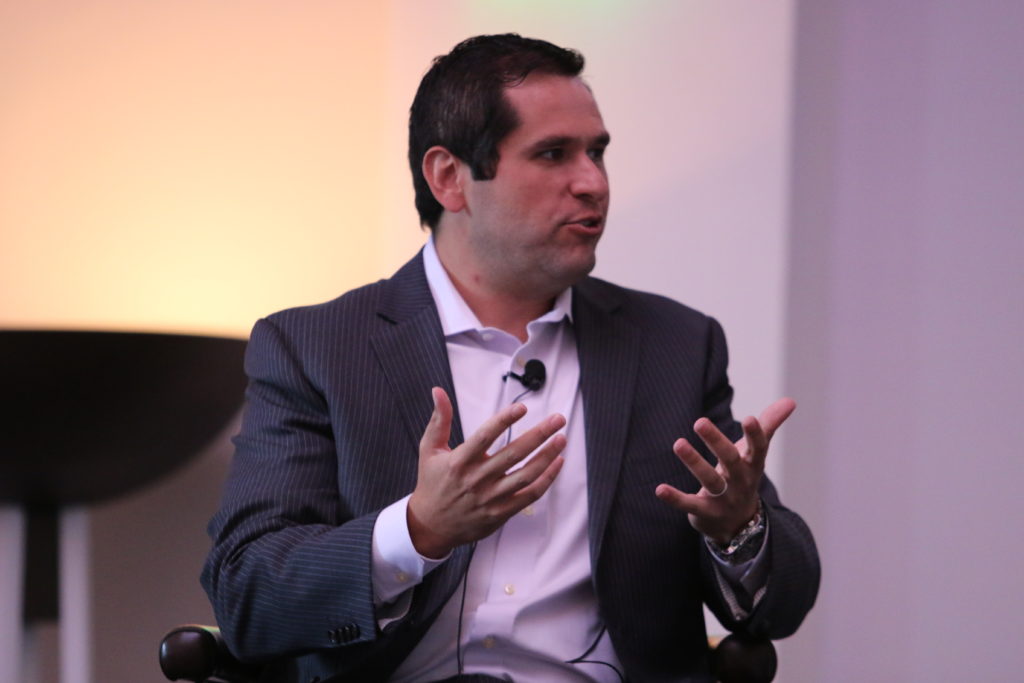
Mark Rossano: Well, and it’s interesting that you talk about that grand plan, because as you say, there’s always, that five-year plan.
So, when you look at what China has been trying to do, has been trying to drum up local consumption and that then got formulated under the dual circulation strategy or the DCS and then when you take that to the next level you look at, okay, well, it’s not working the way we thought it was going to work.
People still aren’t spending well, you know what Deng’s old saying was let some get rich and now it’s, well, now it’s common prosperity and the common prosperity push is well you guys have gotten rich now it’s time for some of these others. And you’ve brought up that point on on, on playing video games, but then they’ve also come after living costs, they’re coming after housing coming after food coming after just general living wages, private tutoring, things to bring down cost in general and essentially, you know, spread out some of this wealth to try to drum up some of that consumption. So, I think what, I don’t know how we’re doing on time, but one of the questions that I would have to you is when you look at how the, the, the economy is segmented and how they are trying to do so much for the consumption side.
What is the culture really? Like? Can they really get that spending that they need to try to drum up? I mean, it’s the largest country in the world by population, but yet you’re not seeing the same type of consumption, but then on some metrics, when you look at their debt levels at the consumption level, the consumers over levered now, where do you see kind of that playing out?
And is there going to be maybe some additional strategy to redistribute or move some of this cash from Alibaba’s the the Didis of the world in that area and bring that back down to the consumer.
Bob Guterma: Yeah, I think that I’m getting the, wrap it up signal. I’ll answer the question briefly. However, just to not leave people hanging the how, how to do it concisely, Google, “middle income trap”.
It basically is an economic trap that a lot of countries fall into where they raise their absolute GDP, very high compared to wherever it started. And the per capita GDP goes up a lot, but then it sort of plateaued. Because they can’t reap the benefits of technology or productivity gains or their population starts growing or in the case of China’s plateauing and maybe even shrinking in the most recent couple of years.
And the problem is that they’ll never on a per capita basis, become a rich country. This outcome is almost like fully cooked in the oven, demographically speaking, if you look at their population growth and their economic growth, and there are technological phenomenon that may be unlocked by science. And especially if they’re the ones to unlock it before some other country that could undo the binds of this, but it’s called constrained growth.
And anything grows like this. It starts off slow. It goes through a period of exponential growth and then it has to slow down. Everything from plants to human bodies to solar systems has a confined growth path and China’s confined growth path, unfortunately it doesn’t result in the individual in China ending up particularly wealthy.
And I think that that slide earlier about stuff getting cheap, but life getting expensive may be what is the only unifying thing behind what the Chinese government is trying to do right now? I will say that as much as I would a, Say, you know, that the CCP, the Chinese communist party is like something that I’m not down with.
Like, I don’t support them. I’m not a fan. So, to speak. You got to say that they’ve done a pretty good job managing their country. And I will also say in their defense that they are genuine communists. They actually are there for the common good. Now whether they always act in alignment with that belief system, like did all the people in the party get rich way before everybody else and get way richer than anyone else will get.
Yeah. But that’s what always happens. Right. But they mean it when they say we’re here for the common good. And so, I think the one unifying theme is that they’re taking stock of where they are against their real values. And they’re saying shit, we’re not actually doing what we say we’re doing, we, we should probably start doing that.
And so, I think that they are going to try to lift people up and at least limit the gap of wealth in their country. But I do think they’ve got some, some freight trains of demographic realities coming at them that will limit their ability to lift the whole country out. And then the last thing I’ll say is we’ve read a lot about the three or 400 million people that have been lifted into the middle class in the past 20 years.
Go read about the 400 million who are still at or around the poverty level. How do you get the second 400 million up, especially when your capital formation process is way overheated and all the old tricks you did to pull the first 400 million up cannot be played again? And the demand problem you mentioned is, you know, present it’s palpable.
How do you get, so you still have more than the entire us. That’s stuck below the “happiness threshold” so that’s a huge problem.
I think we got to end it there. Yeah.
About the speakers
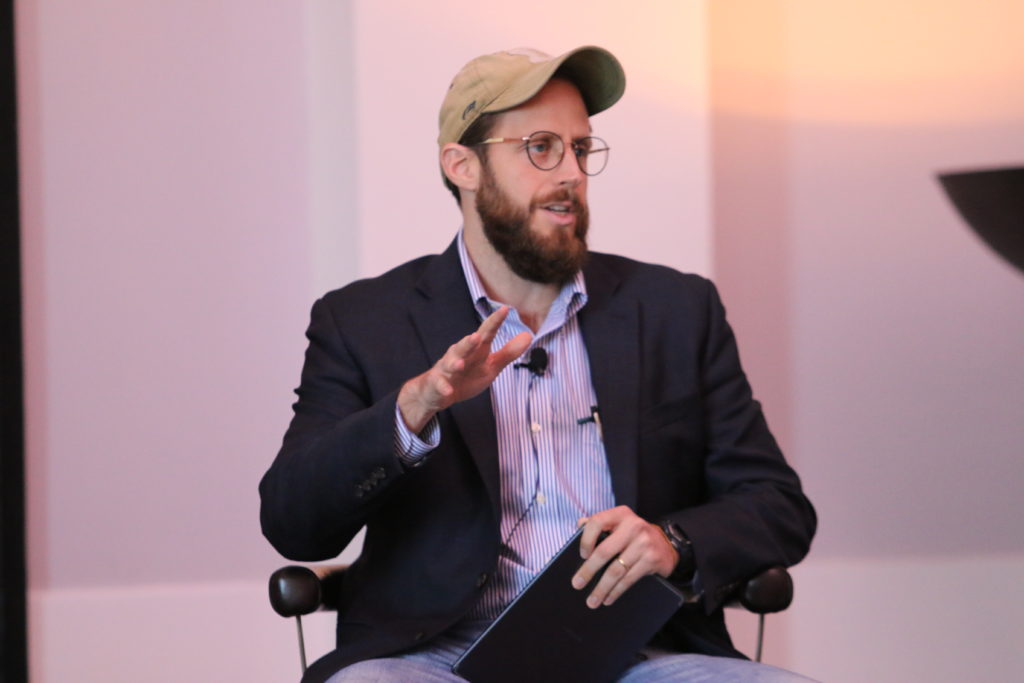
About Bob: Bob Guterma is SupChina’s COO. He previously lived and worked in China for nearly 10 years, during which time he led complex due diligence and problem-solving investigations for global private equity and hedge funds and Fortune 500 clients.
He did this work during his 6 years with the London-based specialist consultancy Control Risks and 4 years with the largest expert network and primary research provider in China, Capvision Partners. His work with Capvision eventually led him to move to Berlin to support Capvision’s Chinese clients’ move to invest more in Europe and the U.S. After leaving Capvision, he returned to the States where he ran his own M&A and corporate transformation consultancy for four years before joining SupChina in 2019. He is fluent in Chinese and Spanish and conversational in German and graduated from Georgetown University with a degree in economics.
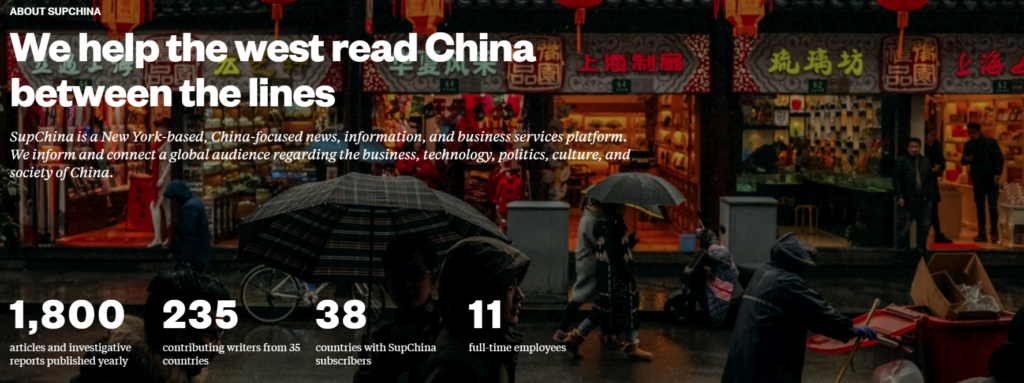
About SupChina: SupChina is a New York-based, China-focused news, information, and business services platform. We educate, inform, and connect a global audience of decision makers in business, finance, government, and academia on the politics, business, technology, society, culture, and trends of China — a country whose rise is reshaping the modern world.
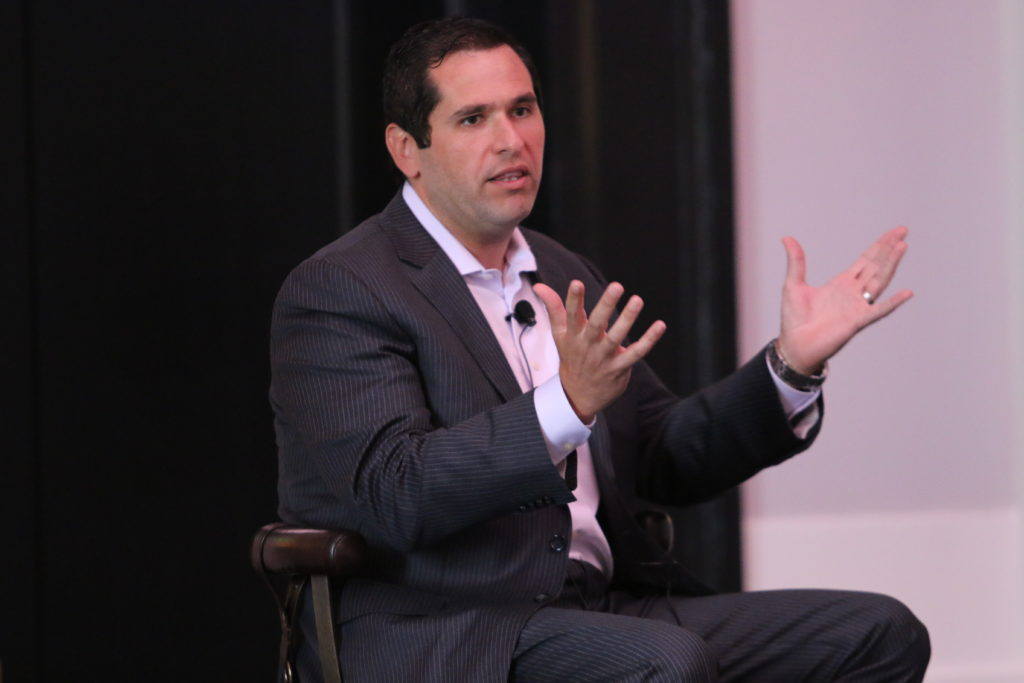
MARK ROSSANO is a financial industry veteran and renowned expert on global financial markets and supply-chain analysis. As Founder and CEO of C6 Capital Holdings LLC, he provides investment and consulting services to clients across multiple sectors with a pronounced focus on global product flows.
Mark’s deep-dive supply chain expertise is in high demand—he serves as a consulting executive to several international businesses, is an equity partner in several others, and is now a frequent contributor to Bloomberg TV after serving as a Bloomberg Energy Industry Analyst.
That expertise has been crafted over many years in a variety of roles, including Senior Energy Analyst and Macro-Economist positions at Elevation, Candlewood Investment Group, and South Ferry Capital Management, as well as his formative experiences as a Portfolio Manager at FNY Capital and Morgan Stanley Investment Management, where he managed an eight-person team focused on developing a global trade platform to invest in rates, foreign exchange, commodities, and equities.
Mark received his bachelor’s degree in economics from Loyola College in Maryland and his MBA in Finance from Syracuse University’s Whitman School of Management. During that time, he was a founding member of Syracuse’s Net Impact organization—an international nonprofit that focuses on building businesses with socially and environmentally sustainable processes.
Request a personal introduction:

We’re happy to make direct connections to both Bob Guterma & Mark Rossano to qualified persons.
To request a personal introduction please visit our contact us page to send us a message.

